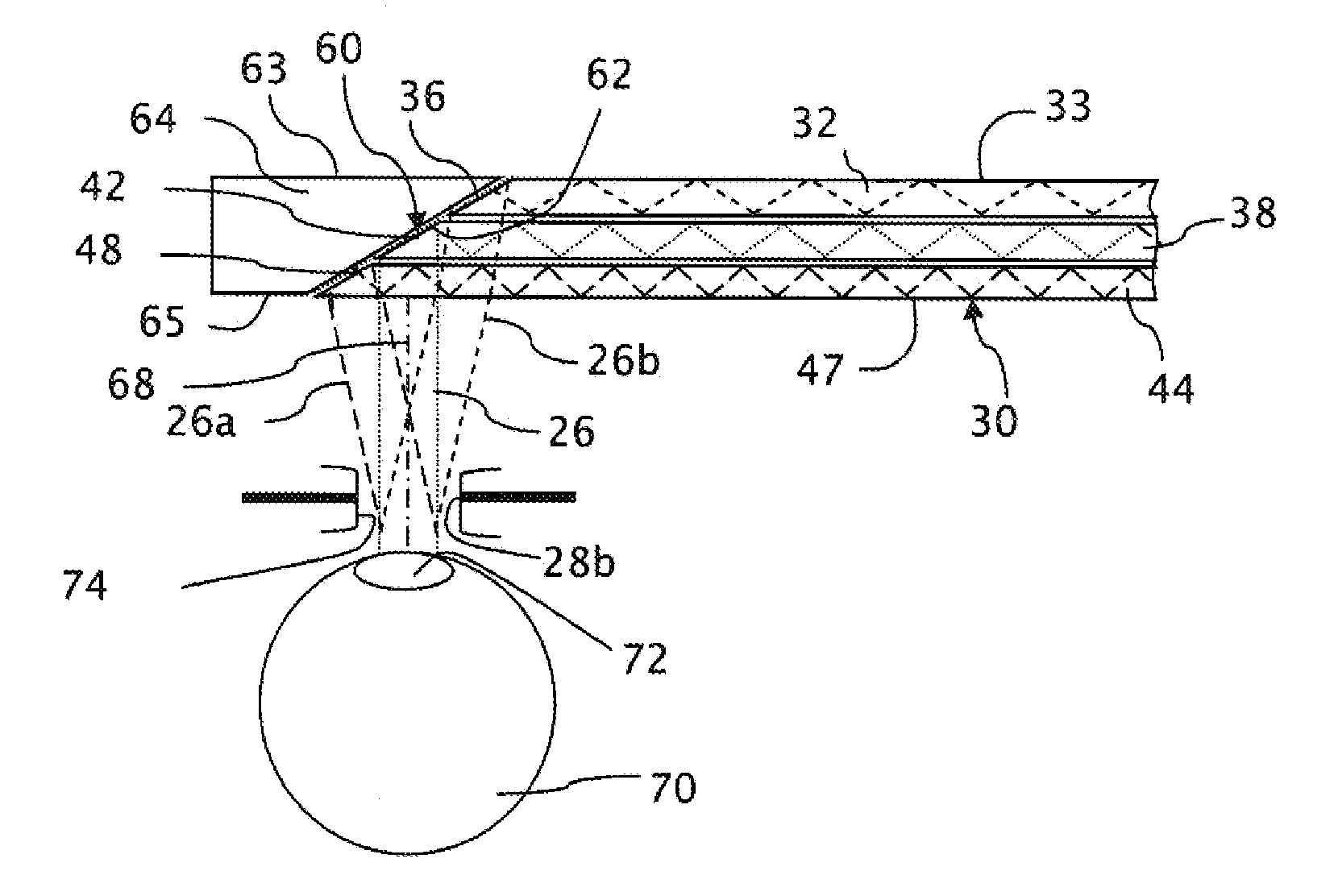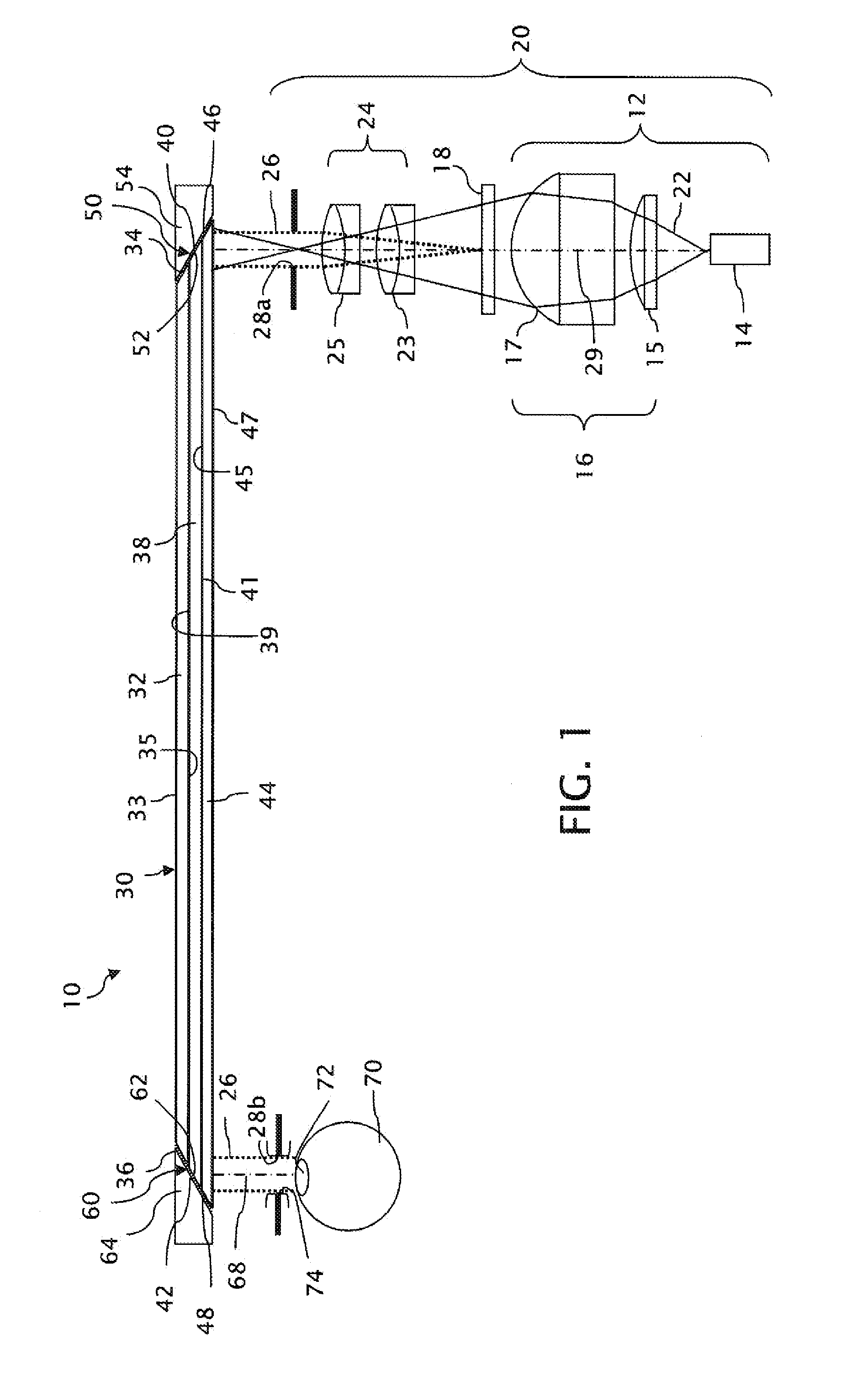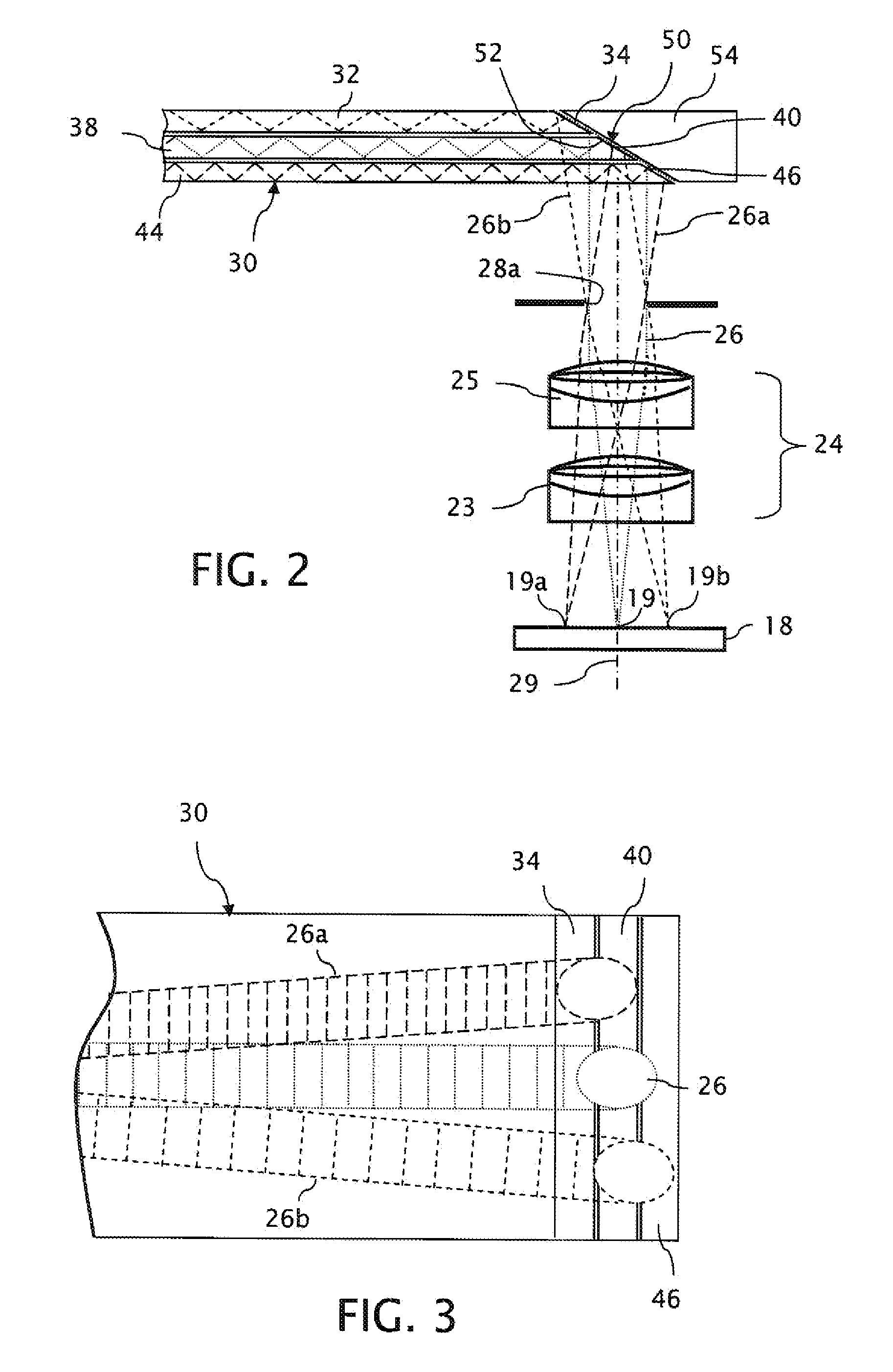Prismatic multiple waveguide for near-eye display
a near-eye display and waveguide technology, applied in the field of near-eye displays, can solve the problems of limited parallelity between multiple waveguides, and achieve the effect of constant grazing angles
- Summary
- Abstract
- Description
- Claims
- Application Information
AI Technical Summary
Benefits of technology
Problems solved by technology
Method used
Image
Examples
Embodiment Construction
[0040]A general optical layout of a near-eye display 10 arranged in accordance with the invention is shown in FIG. 1. The near-eye display 10 includes an image generator 20 for generating angular transforms of virtual images intended for display and a compound optical waveguide 30 for conveying the output of the image generator 20 from outside a viewer's field of view into alignment with the viewer's field of view.
[0041]The image generator 20 is based on a spatial light modulator 18, which produces light patterns in accordance with a video input signal (not shown). An illuminator 12, which includes a light source 14 and a condenser 16, uniformly illuminates the spatial light modulator 18. The light source 14, which emits an expanding light beam 22, can be formed by one or more light emitting diodes or other sources including lamps known for illuminating spatial light modulators or other microdisplay engines. The condenser 16 includes one or more optical elements, such as a PCX (pian...
PUM
| Property | Measurement | Unit |
|---|---|---|
| distance | aaaaa | aaaaa |
| refractive index | aaaaa | aaaaa |
| refractive index | aaaaa | aaaaa |
Abstract
Description
Claims
Application Information
 Login to View More
Login to View More - R&D
- Intellectual Property
- Life Sciences
- Materials
- Tech Scout
- Unparalleled Data Quality
- Higher Quality Content
- 60% Fewer Hallucinations
Browse by: Latest US Patents, China's latest patents, Technical Efficacy Thesaurus, Application Domain, Technology Topic, Popular Technical Reports.
© 2025 PatSnap. All rights reserved.Legal|Privacy policy|Modern Slavery Act Transparency Statement|Sitemap|About US| Contact US: help@patsnap.com



